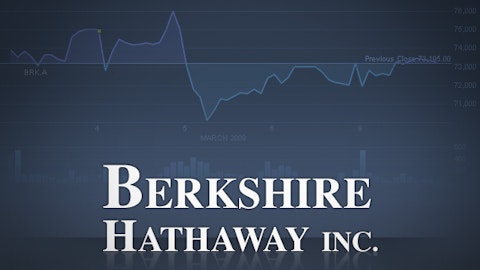With the government buying $40 billion in mortgage-backed securities every month, in addition to $45 billion in long-term treasuries, QE3 continues to have a huge impact on mortgage REITs for the time being. Ending it could provide some short-term pain and long-term gain for two companies in particular – Annaly Capital Management, Inc. (NYSE:NLY) and American Capital Agency Corp. (NASDAQ:AGNC).
How close are we to the end?

The Fed said the program will continue until unemployment drops below 6.5% or inflation rises above 2%. With inflation rates testing those levels and unemployment falling to 7.5% in the latest report, it’s only a matter of time before the Fed begins tapering its spending.
New York Fed President William Dudley indicated we’re still three or four months away from a real decision by the Fed regarding the end of QE3. They fear that tightening the economic policy prematurely will yield far more drastic results than continuing it slightly too long.
So, how will mREIT investors feel the impact of a smaller government presence?
Increased long-term interest rates
The idea behind QE3 is that the government buys $85 billion worth of long-term debt, and artificially keeps the interest rates low. This makes it easier for Americans to buy a home, leading to an increase in value for the beaten-down housing market.
When the Fed tapers its spending, the demand will have to be made up by the private sector, which generally requires a higher interest rate than the government. As a result, long-term interest rates will begin to rise.
Decline in book value
Both Annaly Capital Management, Inc. (NYSE:NLY) and American Capital Agency Corp. (NASDAQ:AGNC) invest in fixed-rate long-term bonds. Higher long-term interest rates imply lower long-term bond prices. That means both companies will see a decline in the value of their holdings.
We’re already seeing this decline as the market has anticipated the end of QE3 since the beginning of the year. In the first quarter, American Capital Agency Corp. (NASDAQ:AGNC) reported a $2.21 loss per share in “other comprehensive areas” – mostly unrealized investment losses. The company’s book value declined 9% to $28.93. Annaly’s book value fell 4.1% last quarter.
Increased spreads
While long-term interest rates will rise with the end of QE3, short-term rates will remain largely unaffected. That means the spread – the difference between the long-term rate and short-term rate – will increase.
Generating a wide spread is the main business for mREITs, but it’s even more important to those that invest in long-term mortgage bonds like Annaly and American Capital Agency Corp. (NASDAQ:AGNC). The post QE environment will be very beneficial to these companies’ earnings potential.
But without the impact of the Fed’s consistent purchases, yields on mortgage bonds will experience increased volatility. As a result, Annaly or American Capital Agency Corp. (NASDAQ:AGNC) will have to spend more on hedging their interest rate risk.
What’s an investor to do?
It seems clear that the end of QE3 means a short-term decrease in the book value of both Annaly and American Capital.
